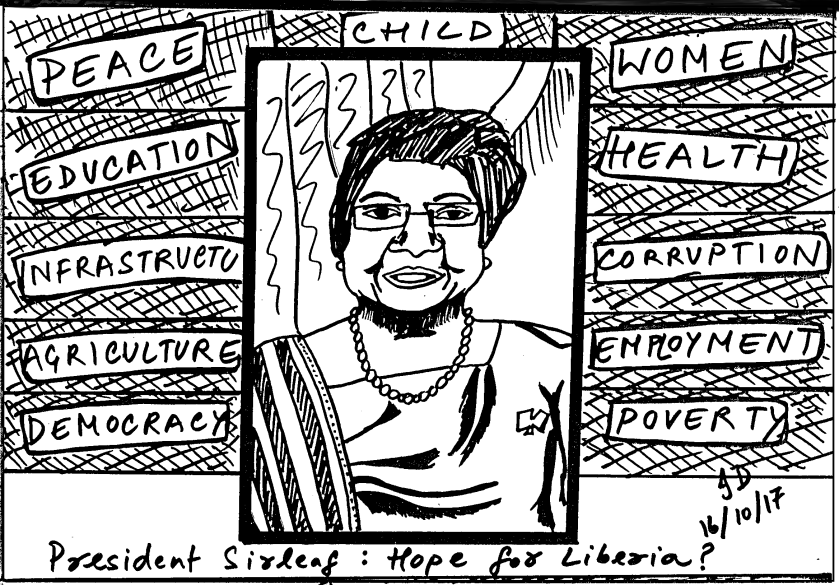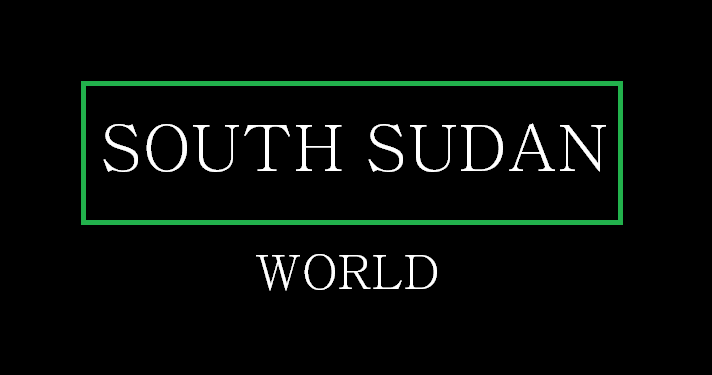
President’s dreams for Liberia
Liberia, a small nation nestled in the north-western part of Africa, has had one of the most powerful leaders that the world has seen. Outgoing President Ellen Johnson Sirleaf, the first democratically elected female Head of State in the continent and the first female President of Liberia, has led the nation remarkably in the last twelve years, working towards the promotion of peace, access to education, women and child empowerment, infrastructural development, growth of employment opportunities, access to better health facilities, advancement of good governance practices, revitalization of Liberia’s national economy, and restoration of its international standing.
Gearing up for democratic transition
She not only had an illustrious career, comprising stints with the World Bank and the United Nations Development Programme (UNDP), but was also the recipient of numerous prestigious awards and recognitions, including the Nobel Peace Prize, with fellow Liberian Leymah Gbowee, and Yemen’s Tawakkul Karman, in 2011. She had taken charge of Liberia following a 14 year civil war which had left the country devastated and its resources severely depleted. The previous President, Charles Taylor, has been indicted by the Appeals Chamber of the Special Court for Sierra Leone for committing crimes against humanity and war crimes. While he is serving a 50 year term in the UK, Sirleaf is getting ready to hand over the baton to the next President. In an interview with the Financial Times, Sirleaf said, “We [need] to make sure we have a peaceful and credible succession process and that we get a successor who will carry on and consolidate what we’ve done — and improve upon it.”
Ma Ellen’s Legacy
However, despite her honours, accomplishments, and passion for change, her legacy is mixed. The critics highlight that Sirleaf could not contain corruption effectively in her country, while facing accusations of her own for providing top government positions to her three sons (though they were qualified for such positions). Further, lack of employment among the youth caused widespread unhappiness and restlessness. According to some other critics, the Ebola crisis not only demonstrated the shortcomings of the healthcare system, but also took a massive toll on the already faltering economy of Liberia. As the country enters the election phase, one of the rally cries includes this slogan, “Our ma spoil it, our pa will fix it.”
Conclusion
Sirleaf was referred to as “Ma”, “Iron Lady” and “Africa’s Queen”. She not only fought demons in her own backyard in the form of her abusive husband, but also led a successful election campaign against some of the most despotic leaders who resorted to violence to prevent her victory. According to The Envoy, as the first female President of Liberia, she provided a beacon of hope to young girls and women who were, till she assumed office, unconvinced of a woman’s potential to be the leader of their country. Even though she was not a perfect President, she was definitely a person whose sheer grit, courage and willingness to take on the impossible will inspire generations to come. Even though she will not be a part of Liberia’s political future, her sense of optimism can continue to guide the country towards peace, prosperity, and power for all (through education).
For an overview of The Envoy’s coverage of issues related to Women’s Rights please visit http://www.theenvoy.in/Womens-Rights/


